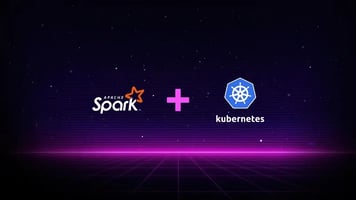Decoding destinations: The power of NLP and sentiment analysis in tourism, travel, and hospitality
Most of the reviews on TripAdvisor, Google, Expedia, or Yelp help travel companies and organizations understand their customer’s feelings about their products, services, and offerings.
But what if you could learn even more from this data and apply these actionable insights to your growth strategy?
Let’s analyze how natural language processing (NLP) and sentiment analysis help you do just that: research customer insights at scale and extract valuable information. And how, with the right tools, you can use this data to optimize operations, improve visitor experiences, and make better decisions for sustainable tourism development.
What is NLP?
Natural Language Processing or NLP is a field of artificial intelligence (AI) that focuses on the interaction between computers and humans through language. By making human communication, such as speech and text, comprehensible to computers, it enables them to understand, interpret, and generate human language in a way that is both meaningful and contextually appropriate.
What is sentiment analysis?
Sentiment analysis or opinion mining is an NLP technique that uses machine learning (ML) algorithms to determine the emotional tone behind online conversations. The goal is to automatically classify the sentiment of a text as positive, negative, or neutral to analyze social data, gauge brand reputation, and understand customers.
Why are they important for tourism service optimization?
Travel, tourism, and hospitality (TTH) are data-intensive industries. There is a constant aggregation of information about travelers, and a constant exchange between various parties that need it to deliver great experiences.
Using NLP and sentiment analysis helps TTH entities optimize services and enhance customer experience by automatically interpreting feedback across multiple channels.
With thousands of comments, posts, emails, and reviews coming in daily, manually searching through, reading, and analyzing these insights becomes impossible. The only way to get an accurate, representative analysis of customer sentiment is by doing it automatically.
Sentiment analysis allows you to look into customers’ written text and detect both positive and negative opinions, then use them to focus on areas of improvement and create better guest experiences. This unlocks countless benefits, including:
- Objective insights: understand your customers' needs, preferences, expectations, and satisfaction with objective, unbiased, AI-based insights.
- Analyze at scale: scale the process of mining information from a vast amount of unstructured data, like emails, chatbot transcripts, and customer relationship management (CRM) records.
- Enhanced customer understanding: gain a deeper understanding of customer emotions and opinions, and use them to tailor services and address concerns proactively.
- Operational efficiency: automate processes related to customer inquiries, bookings, and support, reducing the need for manual intervention and streamlining operations.
- Competitive advantage: capture new market shares and boost tourist arrivals and satisfaction by anticipating trends, identifying emerging opportunities, and adapting your offerings accordingly.
- Time and resource saving: save time and resources by streamlining operations, reducing costs, and improving service quality.
Ultimately, sentiment analysis acts as a compass, guiding businesses and organizations in the TTH industry towards strategies that foster customer satisfaction, loyalty, and revenue growth. It's not just about the data; it's about connecting with the story behind every piece of feedback, making sure no valuable insight is left unturned.
What are the key challenges associated with sentiment analysis?
While NLP and sentiment analysis offer significant benefits, they also come with several technical challenges:
- Language variability: NLP algorithms have to be trained to understand and process the diversity of natural language, with variations in vocabulary, grammar, slang, and cultural nuances.
- Ambiguity and polysemy: words and phrases often have multiple meanings depending on context, which means computers need to derive their intended meanings in a given context.
- Data quality and quantity: NLP model performance depends on the quality and quantity of training data available. Obtaining labeled data for training sentiment analysis models can be time-consuming and expensive.
- Sarcasm and irony: people sometimes express their negative sentiments using positive words, which can be difficult for computers to detect without a thorough understanding of context.
How it works: optimizing travel services with Fyrefuse data orchestration
Harnessing the power of big data requires advanced analytical tools and expertise that align with your goals. That's where data orchestration solutions like Fyrefuse come into play, with comprehensive capabilities to extract meaningful insights and drive optimization.
To understand how sentiment analysis and NLP work for the TTH industries, take a look at how one such entity used Fyrefuse to optimize services.
Client overview
The Government of a Middle Eastern Country from the Gulf Region sought to optimize travel services and enhance tourism experiences within its jurisdiction.
The challenge: optimizing and maintaining quality during tourism surge
Tasked with upholding over 160 Quality of Service (QoS) standards for hotels and accommodations, the client faced challenges in auditing establishments amidst a rapidly expanding tourism industry:
- Staying within defined resources for auditing hotels and accommodations at scale
- Difficulty in conducting on-site audits due to the expanding supply side offering
- The need to maintain operational efficiency while upholding QoS standards
The solution: Fyrefuse insights delivered and visualized at scale
Using Fyrefuse features, the client built ML pipelines to extract and analyze data from various sources. Key components of the solution included:
- Extracting data from major social and tourism-specific websites (e.g. booking.com, AirBnB, TripAdvisor)
- Translating and normalizing all reviews into accepted languages (Arabic and English)
- Analyzing the content and sentiment of each review
- Matching reviews against a dictionary of terms to identify breaches of QoS standards
- Creating a recommendation engine based on guest review data in order to increase service quality
The client leveraged Fyrefuse's functionalities to construct data processing pipelines capable of extracting data from diverse sources (both batches and streams). These pipelines then fed into a ML framework, generating valuable datasets to power a recommendation engine crucial for helping business users in decision-making processes.
.png?width=925&height=496&name=Untitled%20presentation%20(1).png)
Results
The implementation of Fyrefuse yielded significant outcomes for the client:
- Over 6 million scanned reviews, facilitating targeted inspections of establishments with negative feedback.
- Inspection results revealed violations leading to the closure of 283 facilities and the identification of 299 operating without licenses.
- During Ramadan, 30% of monitoring rounds detected violations, including poor service quality and unlicensed operations.
Using Fyrefuse data analytics, the Middle Eastern government revamped travel and operations, ensuring every facility met quality standards and enhancing tourism in the region.
What customers sayWith Fyrefuse, Data Engineer Dario constructed 28 pipelines within just two days, resulting in significant resource savings in both time and money: “As a developer, I'm excited about the prospect of using Fyrefuse to simplify data processing with an intuitive UI on Apache Spark. Speeding up processes, offering reusable templates, and providing a low-code web interface all promise to streamline development and make big data more accessible.” Dario Nicolosi, Data Engineer at KDM Force |
Sentiment analysis is transforming the travel, tourism, and hospitality industries
For TTH entities, selecting the right partner for NLP and sentiment analysis could mean the difference between extracting valuable insights and dealing with incomprehensible data.
Fyrefuse stands out by enhancing NLP and AI models with a comprehensive suite of tools. From data integration to model deployment, Fyrefuse offers everything needed to find the real value of your business or organization among your customers and delight them at every turn.
Take the next step in enhancing your guest experience with Fyrefuse. Visit our website to book a demo or speak with a sales representative today.
.png?height=200&name=Untitled%20presentation%20(2).png)
.webp?height=200&name=img-01%20(2).webp)







